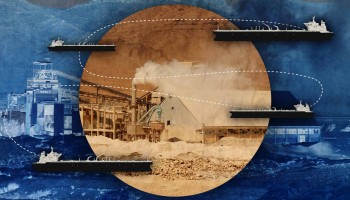Also to go on trial is the manager of the notorious shell company provider investigated by OCCRP.
The indictment accuses ABLV co-owner and CEO Ernests Bernis, former deputy CEO Vadims Reinfelds as well as Arvis Šteinbergs, co-manager of shell firm provider ‘International Overseas Services’ (IOS) group, and five others of laundering the proceedings from crime using shell firms incorporated and administered by IOS.money, according to a copy of the indictment obtained by Latvian TV program "Kas notiek Latvijā?”.
The indictment follows OCCRP’s reporting on money laundering via IOS and Latvian banks such as ABLV, starting in 2012, in connection with the “The Proxy Platform” and “Troika Laundromat” projects.
OCCRP also investigated ABLV in the ‘Pandora Papers’. Other money laundering episodes involving ABLV investigated by OCCRP include ‘Grand Theft Moldova’ and Ukrainian gas fraudster Serhii Kurchenko, the latter also mentioned in the indictment, according to Kas notiek Latvijā.
Bernis, Reinfelds, and Šteinbergs plead not guilty to the charges.
According to Latvia’s Specialized Prosecutor's Office for Organized Crime and Other Sectors, starting 2010, Bernis ran an organized crime group that laundered the money using shell firms incorporated and administered by IOS.
The bank’s provision of shell firms in Cyprus, Seychelles, Panama, Belize, British Virgin Islands, and the United Kingdom allowed customers to transfer money using falsified contracts, this way concealing the ownership and the origin of their illicit funds.
ABLV Bank, via IOS, oversaw the administration of the shell firms and their filing of official paperwork. IOS provided nominee directors to hide the real beneficiaries of the shell firms.
The bank’s division ABLV Corporate Services played a key role in money laundering, according to the indictment, supervising the accounting and tracking of money being laundered, while overseeing the pipeline of shell firms, according to the indictment.
Prosecutors also charged ABLV’s former anti-money laundering heads with money laundering. Their role was to ensure that dirty money did not trigger red flags.






